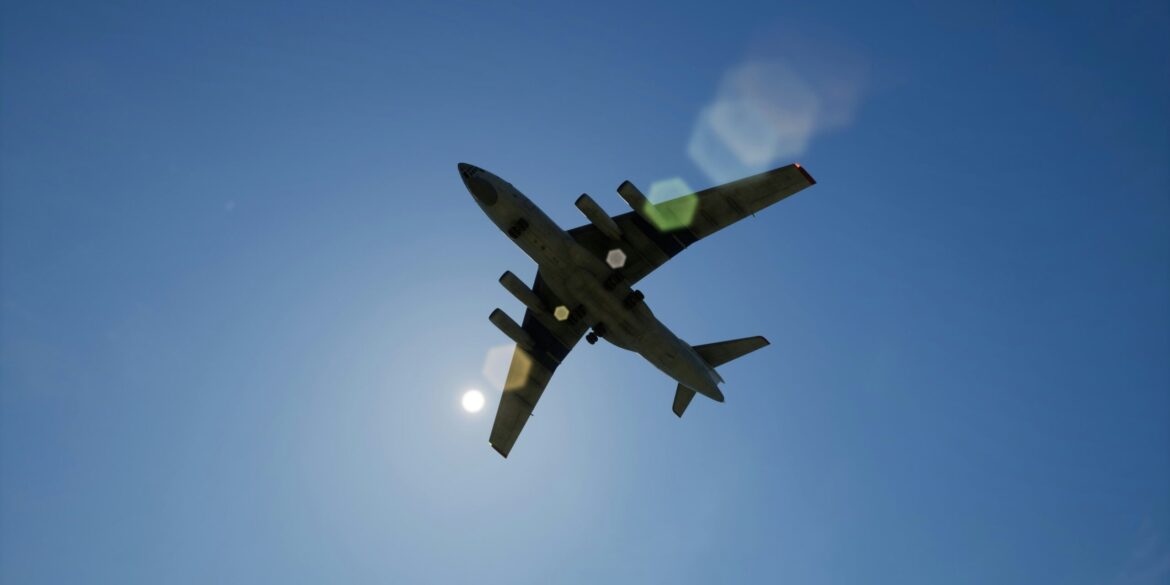In a surprising development on May 21, 2025, the Pentagon officially accepted a Boeing 747-8 jet from Qatar’s royal family for temporary use as Air Force One. Valued between $200 million and $400 million, the luxurious jet will serve as the primary aircraft for the U.S. President until the completion of new, purpose-built presidential planes in 2029. The move, approved by Defense Secretary Pete Hegseth, addresses immediate logistical needs for the President’s travel, but it has sparked significant controversy, raising concerns over national security and constitutional issues.
The decision to temporarily use a jet owned by a foreign nation, particularly one with political and economic ties to various groups in the Middle East, has led to bipartisan criticism. While the aircraft’s value and design make it an impressive and suitable interim solution for the President’s travel, critics have voiced concerns about the implications of relying on a foreign entity for such a critical function. The relationship between the U.S. and Qatar, which has historically been complex, only adds to the scrutiny. Some argue that the aircraft’s acceptance could raise questions about security, with critics citing potential vulnerabilities that may arise from close ties between Qatar and certain groups in the region.
The Boeing 747-8 jet, which is among the most advanced commercial aircraft, has been refurbished and customized to meet the standards required for presidential use. It features advanced communication systems, extensive security measures, and a highly sophisticated interior to accommodate the President, senior staff, and various members of the administration. While the aircraft is being utilized temporarily, its readiness as a replacement for the current Air Force One fleet has been met with mixed reactions from security experts and lawmakers.
This arrangement will hold until 2029 when the U.S. government is expected to finalize the development and construction of new presidential planes, which are typically designed to meet highly specific security and logistical requirements. However, the timeline has drawn criticism for the delay in replacing the aging fleet, with some questioning why the government has opted to rely on a foreign-made jet in the interim instead of pursuing alternative domestic options.
Security concerns are at the forefront of the debate. The U.S. government has stringent measures in place to ensure the safety of Air Force One, but having a plane with foreign ownership involved raises the question of how much control the U.S. can exercise over the aircraft’s maintenance, operations, and security features. The jet is reportedly outfitted with the latest U.S. military-grade technology, but some lawmakers worry that the plane’s origin could complicate matters, particularly in terms of intelligence sharing and cybersecurity.
Bipartisan critics have expressed concerns that the decision might set a troubling precedent in which the U.S. relies on foreign nations for critical government assets. The constitutional implications of accepting such a gift from a foreign government have also been questioned. Some experts argue that the U.S. Constitution prohibits foreign influence in certain government functions, and while the President’s ability to accept gifts is typically regulated, the line between a gift and a strategic agreement in this context is unclear. The potential long-term ramifications of this arrangement have yet to be fully understood, leading to calls for further investigation.
Proponents of the decision, including officials from the Pentagon and the White House, defend the move as a pragmatic response to the immediate needs of presidential air travel. With the current fleet of Air Force One planes aging and in need of extensive upgrades, officials argue that utilizing the Qatar-supplied jet temporarily will ensure continuity of operations while new planes are being built. Furthermore, they emphasize the close working relationship between the U.S. and Qatar, particularly in matters of defense and security cooperation in the Middle East.
The relationship between the U.S. and Qatar has been historically strong, with Qatar serving as a key partner in regional security initiatives. The country hosts one of the largest U.S. military bases in the region, Al Udeid Air Base, which plays a crucial role in operations across the Middle East. Despite this strategic alliance, concerns over Qatar’s connections to various political groups and its role in regional politics persist, and this new development has brought those issues to the forefront.
As the jet is prepared for its role as the President’s temporary mode of transport, lawmakers, analysts, and security experts will continue to monitor the situation closely. The controversy surrounding the Pentagon’s decision has raised important questions about national security, foreign influence, and the long-term viability of using foreign resources for critical governmental functions.

